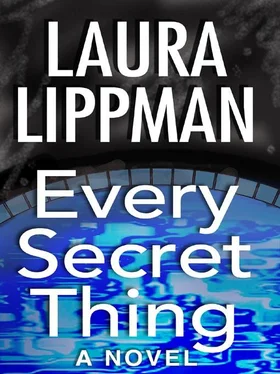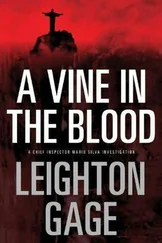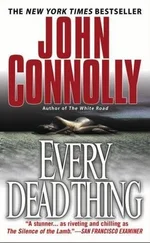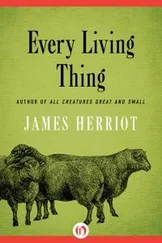“The killing was the point,” Lenhardt said. “More than the money, which would have lasted maybe forty-eight hours, and that’s if they got some financial planner from Merrill Lynch to help them invest it. They didn’t kill someone in a robbery. They had a robbery so they could kill someone.”
“So why bring a gun,” Nancy said, “and use one of the kitchen knives?”
Lenhardt pressed his palms into his eyes and rubbed, hard, the way the redheaded barmaid had twisted Nancy ’s limed-up margarita glass when Nancy asked for extra salt.
“I don’t know, Miss Nancy. I just don’t know. You found the casing in the parking lot. Maybe the kid with the gun fired it and was scared by the noise. Maybe they shot and missed, what with the vic swinging that knife around, assuming they were telling the truth about that. Poor bastard died defending the honor of New York Fried Chicken.”
“Okay, so they wanted to kill someone. But why someone they’d be connected to so easily?”
“They’re not thinking this through, Nancy. They don’t know from standard probability.”
“Seriously.”
“Maybe they killed him because he was their boss once. Because he told them to clean out the fryer, and put those napkins out, and make sure the tables are wiped down. Because he enforced the hair net rule. They killed him-” Lenhardt paused. He knew how to tell a story, how to get his audience hanging on his every word. “Because he cared, because he thought it mattered that the New York Fried Chicken on Route 40 had clean bathrooms and fresh oil and low absenteeism. The fast-food true believer met the West Side Existentialist Club, and the existentialists won.”
Lenhardt rolled his eyes- Did I say that? -and Infante laughed, repeating existentialist in a slightly drunken slur, as if it were funny, maybe even a little dirty.
“You know, five miles east, and it’s not even a county case,” Infante said. “I don’t think it’s where the crime occurs that should establish jurisdiction. I think it’s where the mope lives. Their bum, their tax dollars, their detectives.”
“Shit, you play by those rules, the only thing we’re catching is domestics in Dundalk. Besides, we represent the victims, remember? We work for the citizens of Baltimore County.”
Lenhardt’s mood had been rising and falling since they arrived at Wagner’s. He always plunged after the initial high of getting the work done. “Homicide hypoglycemia,” he called it. Nancy experienced the same thing, if to a lesser degree. It felt good to get the clearance, but the process exacted a price. She found that she listened to the confessions the way she watched a scary movie, basically wishing it all undone, urging the actors to do the things that would make the movie end in five uneventful minutes. Don’t open that door. Don’t confide in that man. Don’t pick up that phone .
“Cheer up, Sarge,” Infante said. “We won this round.”
“ Campbell died last week,” Lenhardt said.
“ Campbell?” Nancy asked, even as Infante nodded.
“H. Grayson Campbell. H. Grayson Campbell the Third, or maybe it was the Fourth. Died in a nursing home. Last time I stopped to talk to him, he thought I was his stepson. Guy’s got no control of his bowels or his bladder or his brain, he’s facing down death-and he still won’t tell me where she is.”
“Do I know Campbell?” Nancy asked. The name was familiar. Maybe she had seen the file on Lenhardt’s desk. He pulled old files all the time. The sergeant never stopped learning, never stopped studying. And she never stopped watching him.
“Just a rich guy who had a habit of bouncing his wife off the walls every now and then, even after they split up. One night, she doesn’t bounce back.”
“You allege,” Infante said, aping a defense lawyer’s prissy voice.
“Yeah, I allege. Her kids from her first marriage allege. Her family alleges. We’re all alligators, heaping our suspicions on this poor, misunderstood citizen because his ex-wife happened to go over there to talk about her Visa bill, and she’s never seen again, dead or alive. Now that the bastard is dead, I can say it out loud, say it to the world, and it doesn’t do a damn thing. It was her husband. And he left this planet without telling me where he left her.”
“Where do you think he put the body?” Nancy asked.
“I don’t know. Where do county guys go to dump their bodies? If he was a city mutt, I’d check Leakin Park. But he ain’t no city mutt, and even after ten years out here, I never have figured out where county guys dump their bodies. Too much acreage.”
Nancy looked down at her plate, an assortment of deep-fried things-mushrooms, zucchini, the cheese-filled poppers. She needed to go back on her diet. She hadn’t tried, not with a case working, which meant life was all carryout. She calculated calories and carbs, pondered buying a stationary bike. She thought about anything and everything to block out the memories that surged whenever anyone said “ Leakin Park.”
Lenhardt looked in his lap and Nancy understood that his beeper must have gone off.
“Wife time,” Infante said, laughing.
“Hey, at least Nancy and I are still on our first spouses,” he said, getting up and going to the phone, leaving Infante and Nancy alone.
An awkward silence fell. Although the two had spent plenty of time alone together, they seldom socialized. “I had a case once,” Infante said, “where I thought the guy put his wife in a wood-chipper. Guy was really big on gardening. I’ve never seen so much mulch. Everything was mulched.”
“That’s ridiculous,” Nancy said, with an inappropriate heat.
“What?”
“I mean, if there was a wood-chipper, you could check it for blood. You can’t mulch a person without a trace, much less scour all the trace evidence out of a wood-chipper.”
Infante looked at her as if to say: “The fuck did I do?” Nancy couldn’t tell him, because he hadn’t done anything. But picking on Infante would somehow even up the day, make up for what happened when the last of the quartet was being maneuvered into handcuffs for transport to the county jail.
This was the one who had done it, the one who had taken the knife and driven it into the victim again and again and again. He was slight, weighed less than Nancy. But there was something menacing in the very fineness of his bones, as if a bigger boy had been boiled down until all that remained was this concentrated bit of rage and bile.
He had bugged Lenhardt, too, although he didn’t realize it. That was a mistake, not knowing when Lenhardt was mad at you.
“We got you, you know?” Lenhardt couldn’t help telling the little one after he signed on the dotted line. “Your friends gave you up. They told us plenty, by the way. Your buddies, your pals, your confederates.”
Confederates-another Lenhardtism. He had told Nancy he used it for the very associations it raised. Confederate-Confederacy-Civil War-slavery. For the young black men of Baltimore, the wrongs done to their ancestors brought them nothing but shame. To have been a slave was to have been weak. To be descended from slaves was just as bad. But only Lenhardt would think it through this way.
For a fleeting second, the young man had looked surprised, then his face closed up again. Nancy guessed his emotions had flowed much the same way at the chicken place. He had been caught off guard by his former boss’s bravery-and punished him for it. He had chased the night manager from the kitchen to the parking lot, increasingly desperate, worried not about being caught, but about being disgraced by the other boy’s futile courage. He had killed him to show the others the price of such valor.
Читать дальше












